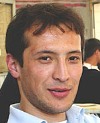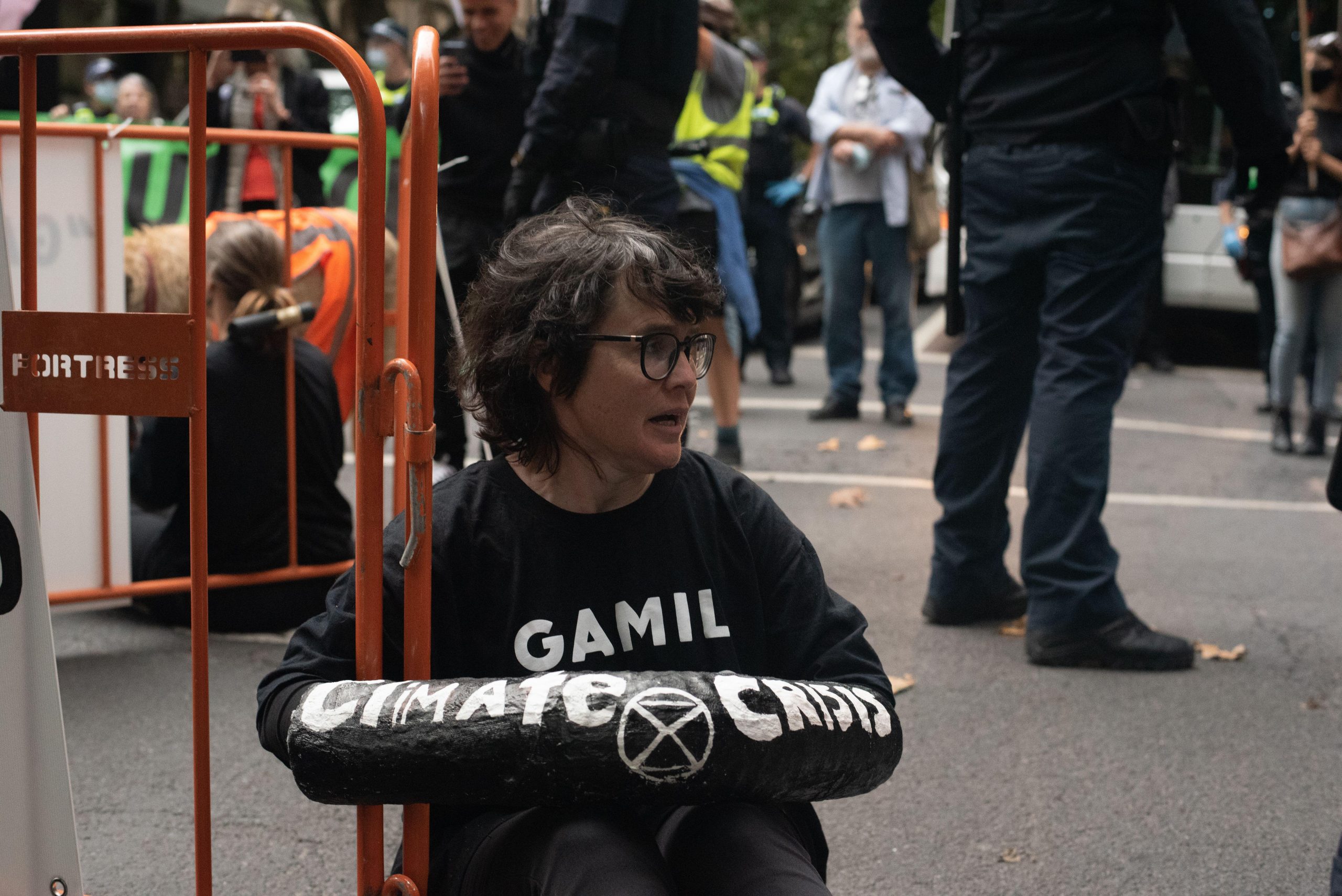 In lifting sanctions less than one year on from the murder of Alisher Saipov, the EU is letting Uzbekistan’s brutal dictator get away with murder, says Michael Andersen
In lifting sanctions less than one year on from the murder of Alisher Saipov, the EU is letting Uzbekistan’s brutal dictator get away with murder, says Michael Andersen
Last Friday, 24 October, was the first anniversary of the murder of the Uzbek-Kyrgyz journalist, Alisher Saipov.
With his articles about the massacre in Andijan in May 2005 — where the Uzbek army mowed down up to 1,000 peaceful demonstrators — Alisher was a thorn in the side of the Uzbek regime. It cost him his life.
Alisher’s fate is unfortunately not unique. Since the massacre three-and-a-half years ago, many Uzbek journalists and human rights defenders have been imprisoned, tortured or killed — in the Uzbek regime’s attempt to suppress the truth.
The regime of Islam Karimov — with 8,000 political and religious prisoners — is one of the most brutal in the world. According to Reporters Without Borders, when it comes to media freedom Uzbekistan is one fo the world’s ‘black holes’, on par with Saudi Arabia and Iran.
Despite this, the foreign ministers of the European Union ‘welcomed the progress achieved in Uzbekistan in the last year’ in the areas of human rights and free media when they met on 13 October to drop EU sanctions against the Uzbek leaders. Sanctions were put in place after the massacre, which was the worst government massacre of civilians since Tiananmen Square.
Last October — while making a film about the massacre, I talked to editor Danil Kislov and Alisher Saipov, his best-known journalist. As both were on the Uzbek regime’s black list, the interview took place in neighbouring Kyrgyzstan where Alisher, an ethnic Uzbek, lived and worked.
‘After the massacre in Andijan, the already strong information blockade in Uzbekistan intensified,’ they told me. ‘All foreign journalists were kicked out. In dozens, if not hundreds, of cases Uzbek journalists were arrested and attacked.’
Alisher was one of the Karimov regime’s most vocal critics, tirelessly writing about how the Uzbek secret police was kidnapping witnesses to the massacre.
‘I know this is dangerous work and our journalists are aware of this as well,’ said Danil with a nod to Alisher.
Just how dangerous was painfully illustrated just a couple of weeks later, on the 24 October 2007, when Alisher was brutally executed in the street in front of his own office. Alisher was only 26 years old and had recently become a father for the first time. He was killed with two shots to the head — the usual method of the Uzbek secret police.
Human Rights Watch was in no doubt who was behind the assassination. ‘Alisher Saipov’s murder is a brutal crime that smacks of retribution for his work,’ said Holly Cartner, Europe and Central Asia director at Human Rights Watch. ‘He was a courageous journalist committed to exposing human rights abuses, particularly by the Uzbek government.’
Needless to say, Alisher’s murder has never been solved.
Organisations such as the Crisis Group, International Helsinki Federation and Human Rights Watch have published detailed reports about the Uzbek regime’s brutal silencing of anybody telling the truth about the massacre. Even the president’s own nephew, a well-known Uzbek journalist, was committed to a psychiatric asylum two years ago when he wrote about the massacre. Many other journalists have already fled to the west. In fact, several of the people we interviewed for our film on the massacre were later imprisoned and tortured.
In Sweden I talked to Matluba Azamatova, an Uzbek journalist who covered the massacre for the BBC World Service.
‘Contrary to what the regime says, the demonstrators were not terrorists,’ Matluba explains. ‘They were normal, average people waiting for the president to come. They wanted to tell him about their problems, hoping he would help them’.
‘But of course they were wrong. Instead of helping them, the Uzbek president just mowed them down.’
The protests in Andijan had started in February 2005 when a group of 26 local businessmen, who had been providing much-needed jobs in the area, were arrested. People in Andijan generally believed that their arrest was due to the corruption of local leaders.
For months the demonstrations had been going on peacefully. But on the 12 May, 2005, the day before the massacre took place, supporters and relatives of the 26 businessmen had stormed the prison and freed them.
‘Earlier that evening,’ Matluba explained to me, ‘the court had sentenced them to between 12 and 27 years in the worst prison in the country, 1,500 kilometres away. Nobody returns from there alive. And that’s why they started the uprising.’
That night the freed businessmen and their supporters occupied the mayor’s office in the centre of Andijan, taking local government officials hostage and killing several policemen.
The next afternoon, 13 May, the Uzbek army drove them out.
But when some of the rebels then hid amongst the peaceful demonstrators who had gathered in their support on the adjacent square, the Uzbek army started firing indiscriminately into the crowd of 15,000, killing between 700 and 1,000.
After the massacre, the Uzbek police confiscated all footage of the massacre. As the massacre took place, Matluba was sitting in Tashkent, interviewing one of the rebel leaders now hiding in the crowd of 15,000 on his mobile phone. She played the tape for me, the only known recording of the massacre.
Heavy machine gun fire can be heard behind a man shouting:
‘We are all lying on the ground because the soldiers are firing at us. All the people are screaming: “don’t shoot, don’t shoot!” But they just keep shooting at us. 10-15,000 people are lying on the ground. Many of them are wounded. They are shooting at us without stopping.’
On the recording, the machine gun fire continues for over three minutes.
‘He died while he was talking to me on the phone,’ Matluba tells me.
After the massacre, the Uzbek regime wanted to arrest Matluba, as she was one of the few journalists telling the truth about what had happened. Friends helped her and her children to escape just before she was arrested. The Uzbek regime got its revenge by killing her brother.
‘We journalists must keep talking and writing about this, and show that President Karimov was behind the massacre’, she says, ‘but of course now many countries are closing their eyes. They want to smooth things over with Karimov, because Uzbekistan has a lot of natural resources and an important strategic position.’
Shortly after I spoke to Matluba — less than one year after Alisher Saipov had been executed — the EU removed its sanctions against the Uzbek leaders.
Michael Andersen has worked as a journalist in Central Asia for many years and has recently completed the documentary Andijan a Massacre: Foretold, Forgiven, Forgotten.
For more on the film, please visit www.mulberrygroup.org





